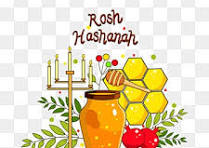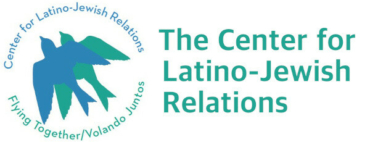Torah Commentary September 26, 2024

שאלו שלום ירושלים
Pray for the peace of Jerusalem
This week’s parashah will be the last one of the year. Next Thursday Rosh Ha’Shanah begins and we say goodbye to the difficult year of 5784. There is no doubt that 5784 has been a year filled with challenges and tragedies. We bring the year to its conclusion with a double reading from the Book of Deuteronomy. This coming Sabbath (September 28th) we read the weekly sections called Nitzavim and VaYelech. You will find these two sections starting in chapter 25:9 and going until chapter 31:30.
Often we can gain insights into the parashah’s meanings simply by examining its Hebrew name. In the case of Nitzavim and VaYelech, the parashahs’ names present two very different aspects of life. Nitzavim means “standing in place or being steadfast or firm”. This is a Bible portion that teaches us the importance of our commitment to our convictions. Nitzavim emphasizes the need to put the present into the context of the past and reminds us that without knowledge of the past we are all too likely to be swayed by current social and political trends.
The meaning of “VaYelech” (the second parashah) is the exact opposite of Nitzavim. VaYelech implies movement. We find the parashah is the counterpoint of Nitzavim. We might translate VaYelech as: “going forth,” or “moving on.” It is one of the sections in which Moses prepares the people of Israel to go into the Promised Land without him.
In other words, these two sections teach us to be steadfast in our principles and convictions and to act on them. Together they teach us that principles and ideas that do not become actions are nothing more than unsubstantial hopes. On the other hand, actions without a vision may be merely events on the road to personal or collective chaos.
In the Biblical text, VaYelech represents the transformation from a nomadic slave people into a people who have come home, and now must be proactive to a new world in which they will soon find themselves. Nitzavim is a review of what was; VaYelech is a journey into what can be. These two sections then unite past with future. In these sections we come to realize that nothing is ever totally static, that with the dawn of each new day even the past changes. Although we can never relieve our past, we can use its lessons to illuminate / guide our future.
There is no doubt that 5784 has been year of challenges. Israel has been forced to fight a multifront war, and throughout the diaspora we have seen the worst cases of antisemitism since the days of the Holocaust. Universities throughout the world have turned into centers of hate and ignorance instead of learning and thoughtful dialogue. We have watched how too many university presidents have shown the world their lack of a moral compass and their wiliness to justify pure racism.
The challenges of 5784 mean that we must find a way to turn bigotry into love and rebuild the hopes that died in the pogroms of last Simchat Torah. We shall have to rebuild the homes lost on the Gaza border and on the northern border with Lebanon, and also rebuild relationships that many believed to be strong but in the end proved to be ephemeral. Tragically we have had to relearn that in a world of constant change we must be steadfast not only in what we say but also in what we do. Our task is to create “stability of the soul” in the midst of an ever-changing world.
How do we meet these challenges? Are we firm in our moral compass and flexible enough to meet new challenges? These are some thoughts to contemplate as we head toward Rosh Ha’Shanah, 5785. May the New Year be one in which the tragedies of the past year become blessings in the New Year. My family and I wish each of you a year of goodness and blessings.
The Next Parashah will be on published on Oct. 17th
CENTER FOR LATINO JEWISH RELATIONS PRESENTS
YouTubes for the week
Three Classical Musical Pieces for the High Holidays
Zochreinu L’Chayim
Ki Anu Amnechah
Kol Nidre
Please pray for Israel’s soldiers and the safe return of all of the remaining hostages.
